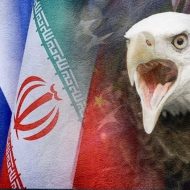By Islam Farag / Cairo
Without a doubt: the US’ decision to withdraw support from the EastMed gas pipeline, a joint project between Israel, Cyprus and Greece, was a victory for regional peace and political realism.
The pipeline, which was announced in January 2020, was not welcomed by most regional parties in the Eastern Mediterranean, each actor having their own reasons to oppose the project.
Apparently, the project, supported by the administration of former US President Donald Trump, is the latest casualty of the latter’s loss of the election to Democrat Joe Biden.
According to a report published by Reuters a few days ago, the Biden administration expressed its reservations about the project, which would have linked the three countries for economic and environmental reasons.
Despite the administration’s reasoning, all of this information was known to those interested and specialists since the start of project planning years ago. So what happened to the estimates of the American administration?
A political card
Put frankly, the project was not an economic matter so much as it was a political card that the three countries waved against certain parties in the region, enemy and friend alike, to achieve political goals.
If we understand the parties affected by it, we could guess who was concerned about the political consequences: Turkey and Egypt.
Turkey strongly opposed the project, because it saw it as a purely political project aimed at marginalizing Ankara and excluding it from projects for optimal exploitation of the Mediterranean’s gas wealth. It also saw it as an attempt to revoke the rights of Turkish Cypriots to that wealth.
In light of the tension and differences between the three countries involved in the project on the one hand and Turkey on the other, it was understandable that the project would be a political message against Ankara despite the absence of its economic feasibility. But it was not understandable that those countries were involved in a project that would strike Egyptian interests and ambitions in such an explicit way, especially since Cairo, in its permanent coordination with Athens and Nicosia, formed a relationship that amounts to an undeclared alliance. The three capitals also witnessed frequent meetings between the leaders of the three countries.
The announcement of this project, which excluded Egypt, was a surprise to many observers of the development of the relationship between the three capitals. The Egyptian stance about the announcement was unclear.
An impossible project
At the time, I spoke to an insider to understand the Egyptian position on the project announcement. The source told me that the Egyptian government finds it very difficult to implement the project from a technical point of view, in addition to the fact that it is not economically viable.
The source indicated that in 2015, a similar line was considered to extend a pipeline to the port of Limassol, but it was found to be uneconomical and dismissed.
The source explained that the decision maker did not pay attention to the tripartite declaration, considering it nothing more than an attempt to force Egypt to make concessions in the field of providing logistical services to other countries, so as not to exaggerate its demands related to the right of passage and the use of the Egyptian infrastructure to liquefy and transport gas to Europe.
Following the reports that talked about withdrawing US support for the project, I asked another well-informed source about his perception of the reasons that prompted Washington for that decision.
The source said that Washington is well aware of the project’s dimensions and knows the political, economic and technical obstacles it faces.
The source added: In light of the tension in the region, this line would have passed through areas of conflict, and we all know the intertwining aspects of the economic areas between Greece and Turkey. There are also Greek islands included in the agreement signed between Turkey and the Government of National Accord in Libya. This project would have increased tension had it been implemented, if it had been feasible at all.
A decision in Egypt’s interest
Regarding the Egyptian position after Washington withdrew its support for the project, the source said: Cairo believes that the American position is consistent with the Egyptian interest in being an important point for exporting gas to Europe.
According to the source, Egypt was not worried because it was aware of the difficulty of implementing the project and the high cost of exporting gas through it if it became a reality.
The source pointed out that, in the absence of this project, Egypt is the only one in the region that owns gas liquefaction and export stations.
According to a third source, the project was facing a major challenge in calculating the economic feasibility, in addition to practical challenges, as it had to pass very large depths of up to 3,000 meters in the depth of the sea, which represents a great difficulty in follow-up, implementation and maintenance.
According to the source, the project was only to feel the pulse of the Egyptian state so as not to exaggerate its percentage and requests for gas exported through it, a way to press it and show that there would be an alternative if they saw that its percentage and demands were too great.
The views of these sources agree with the public statements of the Minister of Petroleum and Mineral Resources Tariq El Molla, who said in a previous interview with an Egyptian newspaper that there are a number of challenges to establishing this line, as most of it will pass through areas subject to border disputes in the economic territorial waters of countries, which creates difficulties.
In that interview, Al-Mulla made it clear that the hasty announcement of this project despite its lack of economic feasibility is a message with political goals and nothing more.
The biggest winners
According to the second source, the withdrawal of support for the tripartite project was due to discussions by several international parties that considered linking with Egypt to be politically and economically better for the countries of the eastern Mediterranean basin, as it avoids exacerbating tensions with Turkey, in order to ensure access to gas to the European market at an appropriate price.
Thus, Egypt and Turkey are the biggest winners, as the decline in US support for the project will create greater economic opportunities for Cairo. At the same time, Ankara will be happy to see the scheme defeated, seeing it as infringing on its interests and rights in the eastern Mediterranean.
The source explained that Egypt possesses an infrastructure with comparative advantages due to its geographical proximity to gas fields in the region. It also owns a network of lines extending between it and Israel and another with Jordan, and it plans to build a new pipeline with Cyprus.
The source added that according to the agreement signed between Egypt and Cyprus in September 2018, a direct offshore pipeline will be established, transporting natural gas from the Cypriot Aphrodite field to the liquefaction stations in Idku, Egypt, and re-exporting it to various markets.
According to Tarek El Molla, Minister of Petroleum, the Egyptian-Cypriot agreement not only includes the implementation of a marine pipeline, but will also contribute to securing gas supplies to the European Union.
Therefore, Washington withdrew its support for the tripartite project as part of its efforts to calm down with various parties and without a political or economic price. At the same time, it is trying to encourage realistic alternatives to reduce the effectiveness of Russia using gas as a bargaining chip in relations with Europe.









Leave a Reply